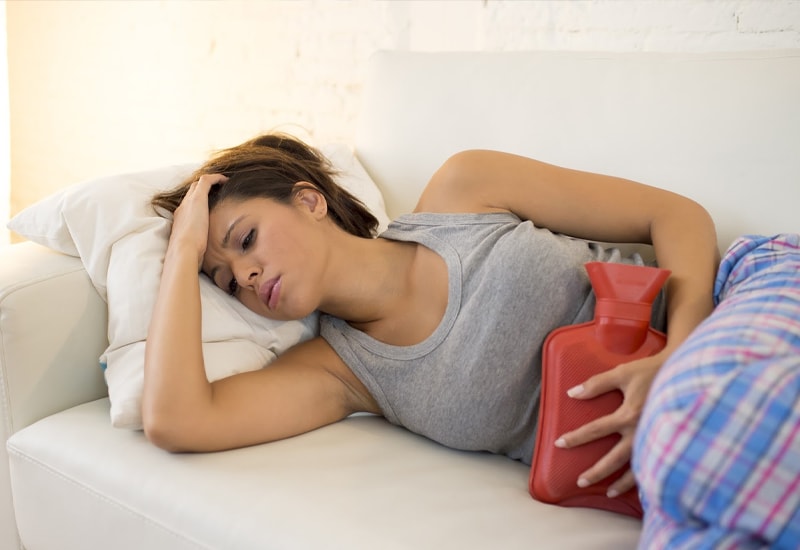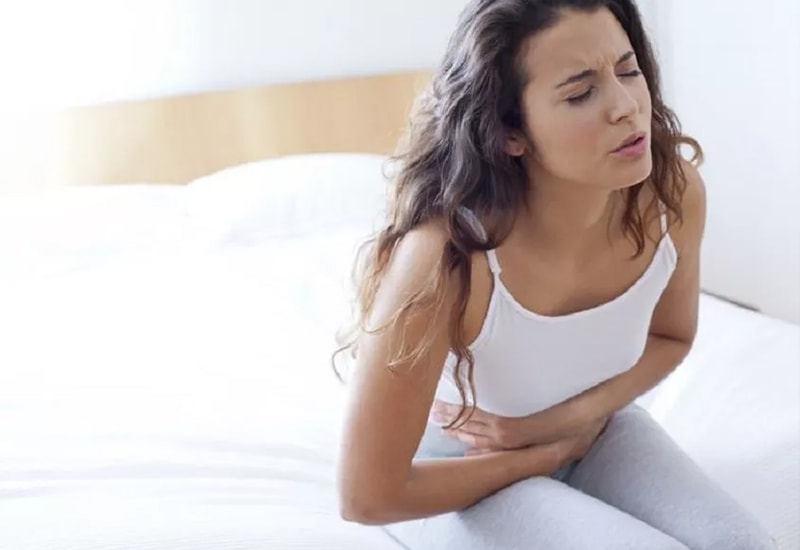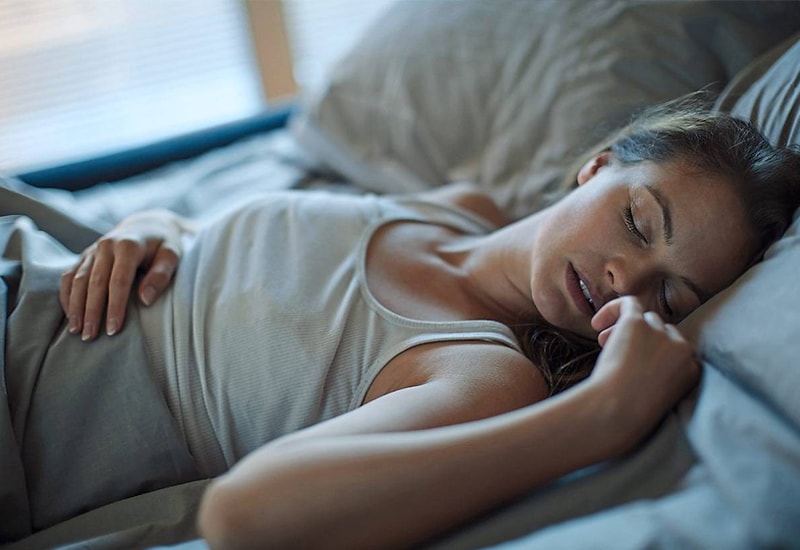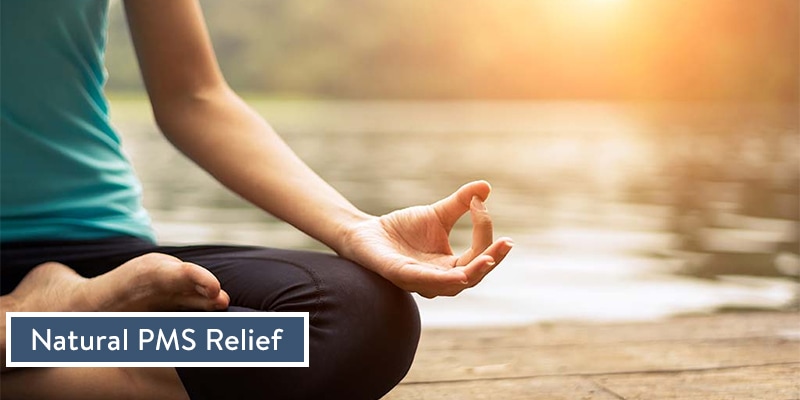Natural PMS Relief
One or two weeks before the start of the period, many women face a variety of symptoms. These symptoms are known as Premenstrual Syndrome (PMS).
Over 90% of women say they face indications such as mood swings, drastic headaches, and bloating. These symptoms could be very serious for some women. Other women might not even bother.
According to research women in their 30’s are inclined to get PMS.
What PMS Actually Is?
A mixture of physical and emotional signs in women occurring after ovulation and before the start of periods is called PMS. It happens due to a drop in estrogen and progesterone levels. As soon as the period starts hormone levels begin surging. PMS symptoms go away at this stage. PMS symptoms affect some women severely. It can stop their daily activities like going to work. Some women might not even feel it. Serious cases of PMS occur due to Premenstrual Dysphoric Disorder (PMDD). If a woman is not facing periods then PMS will not occur. After pregnancy, PMS might return with different types of indications.
Who Face PMS
PMS occurs in women who indicate these signs:
- Women who show elevated stress levels are more likely to get PMS.
- Women who have a history of depression in their family get PMS.
- Women who have faced postpartum depression or depression are prone to PMS.
Does Age Effect PMS
When women reach their 30s or 40s PMS symptoms get more severe than before. These symptoms also get severe during the stage of menopause. During menopause hormone level go up and down. This transition in hormones is unexpected. During this stage, women might get the same mood modifications.

Symptoms of PMS
Symptoms of PMS depend on individual women. It varies from physical indications, for instance, gassiness and bloating to emotional indications like sorrow. A woman might get both symptoms at the same time.
Physical Symptoms Include
- Your breasts might get puffy.
- You might face constipation and diarrhea.
- You night get bloating.
- You might face cramping.
- There is a chance of headache and backache.
- Your tolerance level might fall down.
- You might feel clumsy.
Emotional Symptoms
- Women in this state get more hostile.
- Tiredness is one of the prominent features of PMS.
- Women face sleeping disorder during PMS. Either they sleep a lot or too little.
- The appetite of most women also changes in this condition.
- It is hard for most women to concentrate during PMS.
- Anxiety and stress is at its highest level.
- There is a consistent feeling of depression and sadness.
- Too many mood swings.
It is better to consult your doctor if these symptoms are getting severe.
Causes of PMS
We still do not what causes these symptoms. Normally change in hormone levels plays a major role in PMS. Some women are more affected by this variation in hormones.

Diagnosis of PMS
There is no test to diagnose PMS. It all depends on your symptoms. Following are some signs which indicate whether you have PMS or not.
- You have PMS if your symptoms start five days before the period.
- This routine repeats at least 3 menstrual cycles then it is a sign of PMS.
- If your symptoms end in four days after your period starts then there is a high chance you have PMS.
- If your symptoms keep you away from your daily routines then you certainly have PMS.
- It is important that you keep track of your symptoms and take notes of them. Discuss this information when you visit your doctor.
PMS and other Health Problems
PMS can affect some other health problems which you might have been facing while you are recovering from PMS and PMS symptoms can overlap with some health problems.
- Symptoms of depression and anxiety are similar to PMS. It can get worse during your period.
- Women with chronic fatigue syndrome also report that their symptoms get worse right before the period. Women with CFS are also prone to get early menopause.
- Irritable Bowel Syndrome (IBS) symptoms can also get worse right before the period. It includes bloating, cramping and gas.
- Women who have bladder pain syndrome (BPS) are prone to cramping during PMS.
- PMS may worsen migraines, asthma, and allergies.

Home Remedies for PMS
These tips are necessary if you want to control the symptoms of PMS.
- Regular exercise like aerobics has a good effect on your PMS symptoms. Exercise can control depression and fatigue.
- Healthy eating is also necessary. You must avoid foods with caffeine, salt, and sugar.
- Lack of sleep can also worsen the symptoms of PMS. 8 hours of sleep daily is a must.
- If you are facing stress then find healthy ways to deal with it. Talk to your friends, go for a picnic or start writing a diary.
- If you are fond of smoking then you must quit it. It will help you control the symptoms of PMS.
Medicine To Treat PMS
Prescribed and over the counter medicine can also treat your PMS symptoms. There are pain relievers that can cure physical symptoms like headaches, backaches, and cramps. Ibuprofen, Asprin, and Naproxen are helpful. It is recommended that you consult your doctor before taking medication.
Prescription medicine like hormonal birth control, antidepressants, diuretics, and anti-anxiety medication is also helpful during PMS.
Use of Vitamins
Research shows that the use of vitamins can also relieve PMS symptoms.
Calcium can reduce some symptoms of PMS. It can control depression and fatigue. You must drink milk and eat cheese if you want to increase your intake of vitamins.
Vitamin B6 can control symptoms such as bloating, moodiness, forgetfulness, and anxiety. It is found in foods such as fish, potatoes, poultry, and fruits.
Magnesium is also useful in the control of PMS symptoms like migraines. It is found in green vegetables like spinach and in nuts.
Complementary and alternative medicine
According to some women yoga and meditation is beneficial in the restraint of PMS. Some claim herbal supplements are also very effective. But the use of these alternatives should be under the watch of your doctor or nurse. It is better to find out if there are any side effects of alternative medicine or treatment. According to research, some herbal supplements should not be utilized with other medicines. Some prominent herbal supplements include.
Black Cohosh: The root of black cohosh is used to make tea and pills. It is used to treat menopause symptoms. It can be used to relieve PMS symptoms.
Chaste berry: It is used to extract liquids and make pills. Some women use it to control PMS and find it effective.
Evening Primrose Oil: The oil taken from it is used in capsules. According to some women, these capsules are very effective in controlling PMS.

